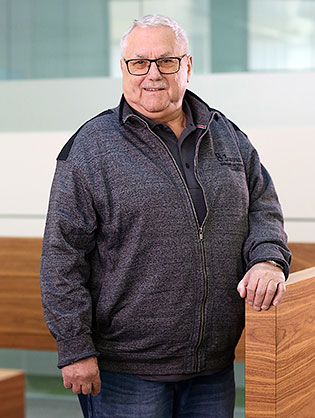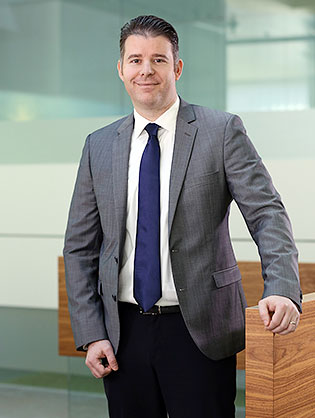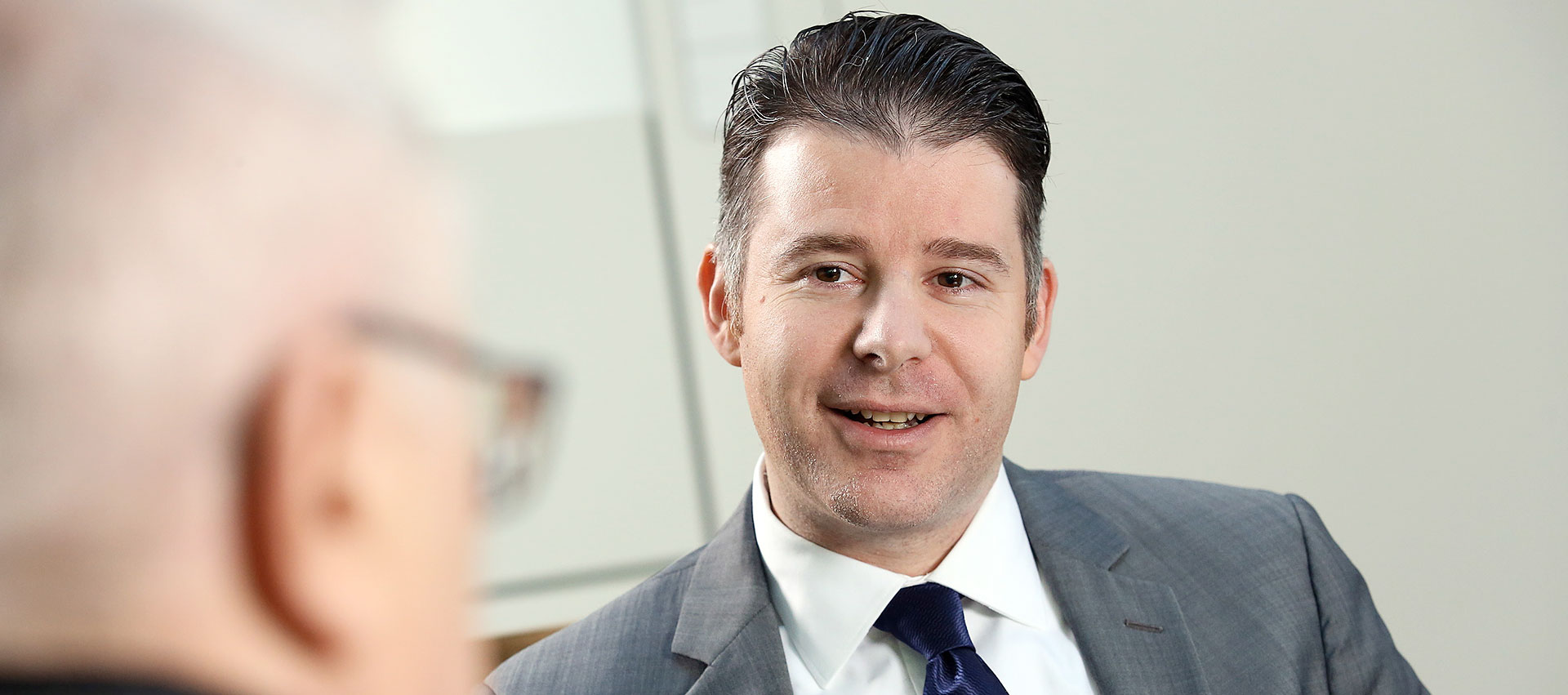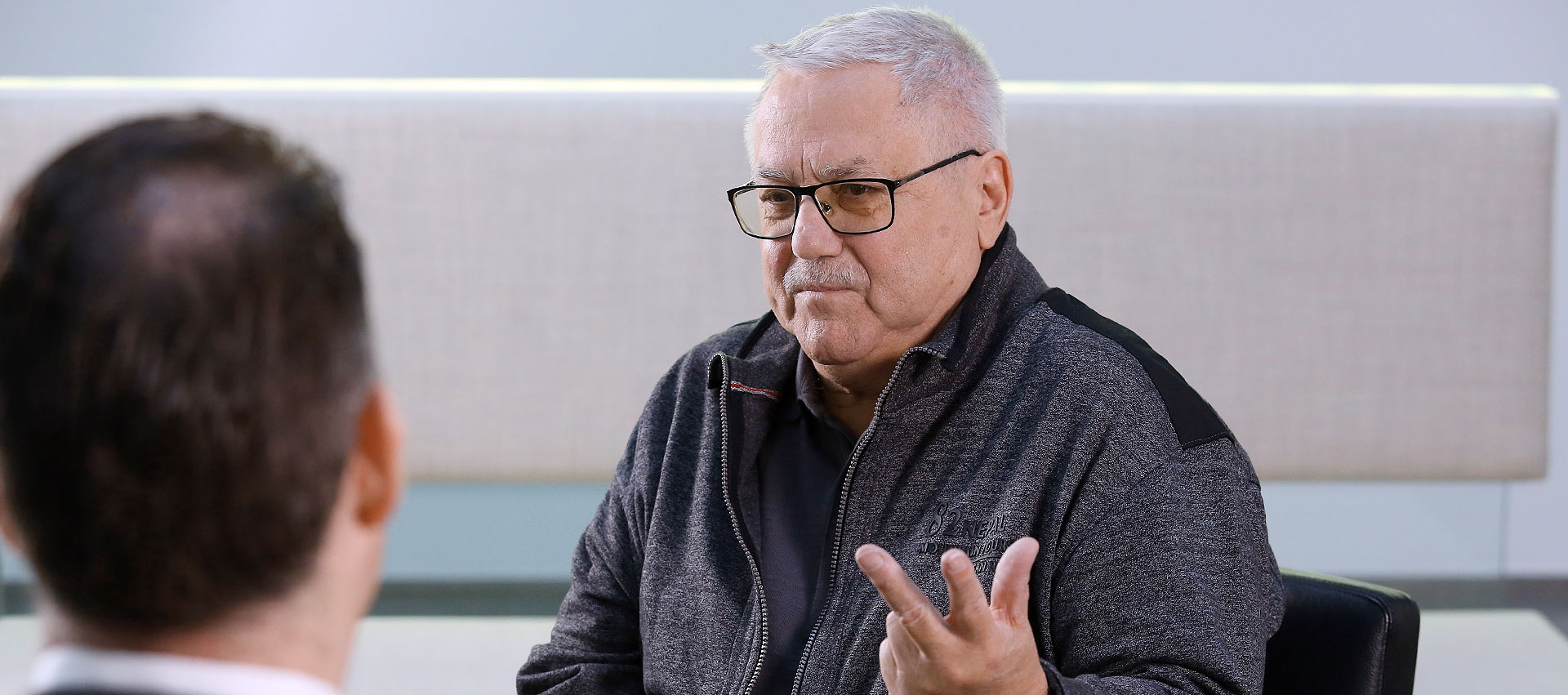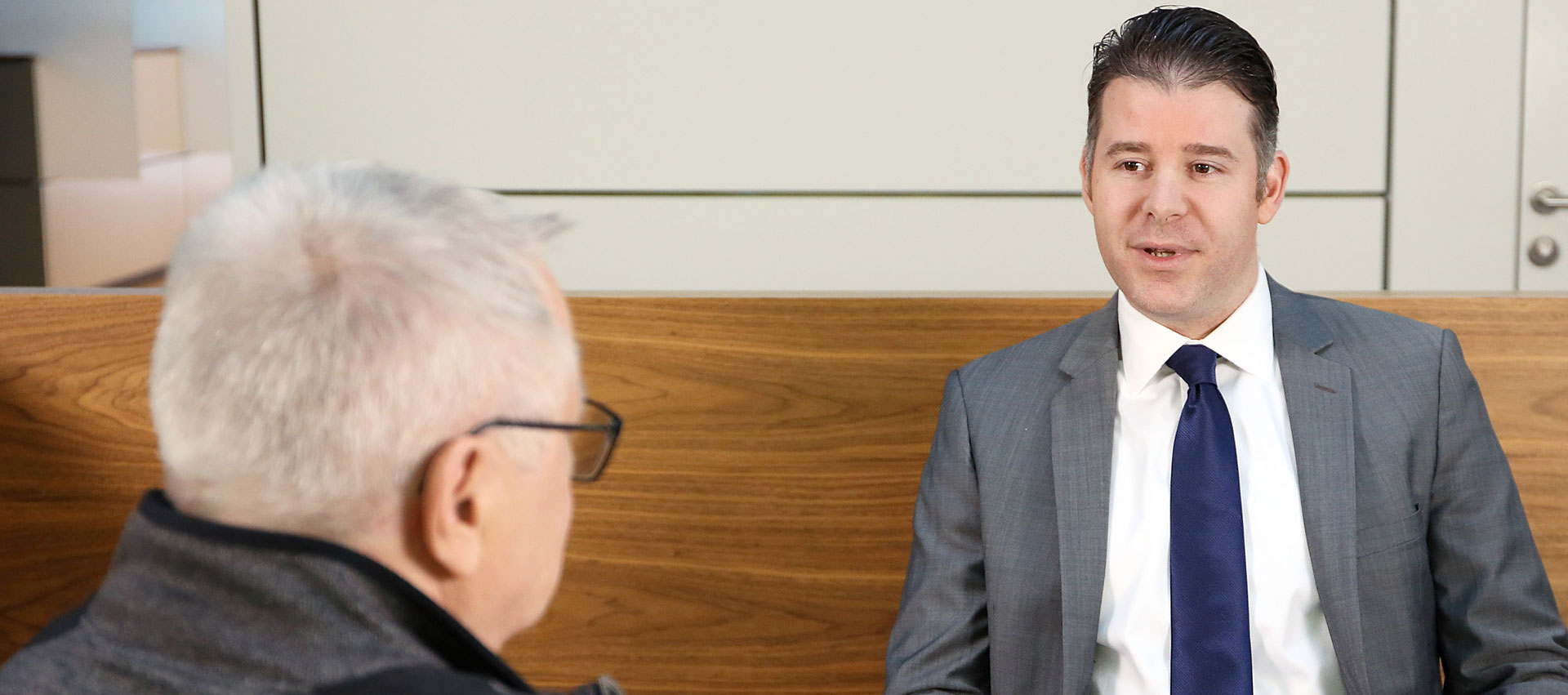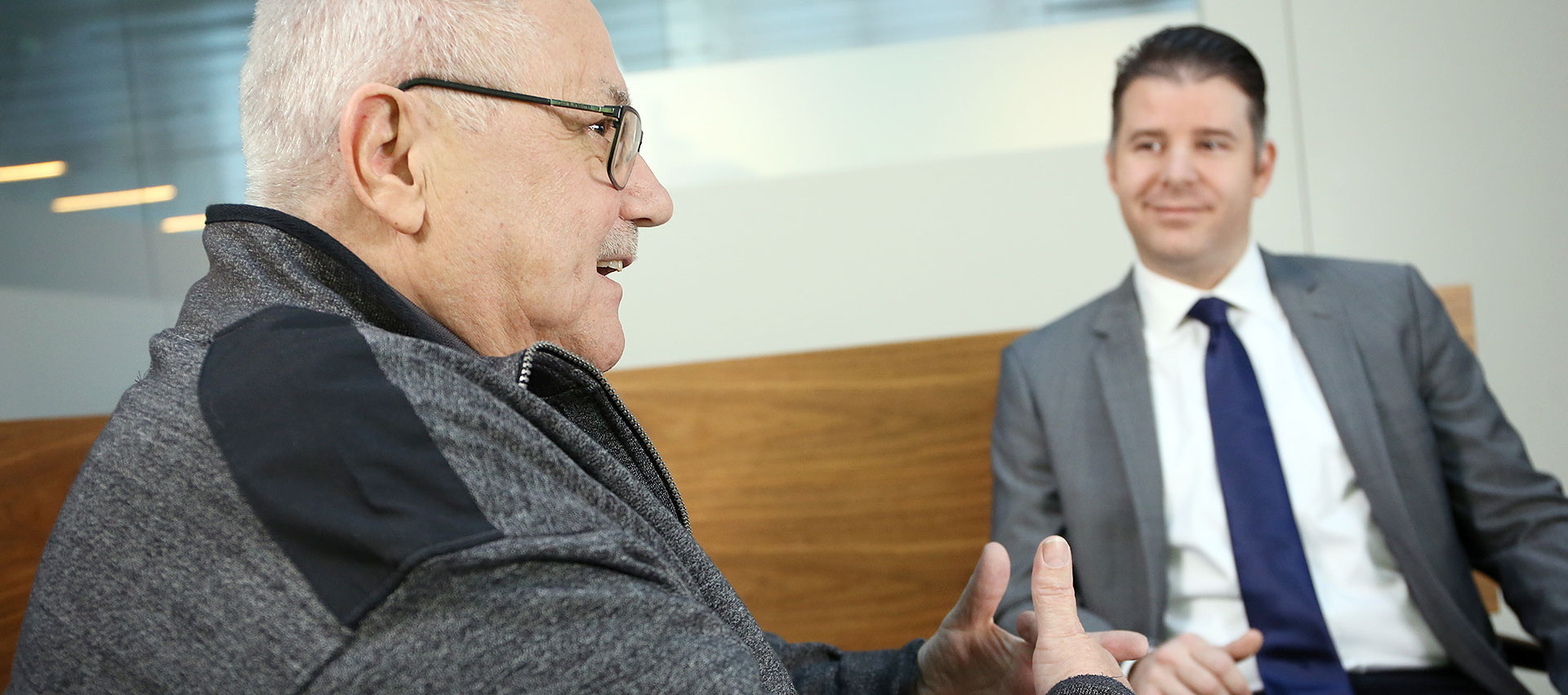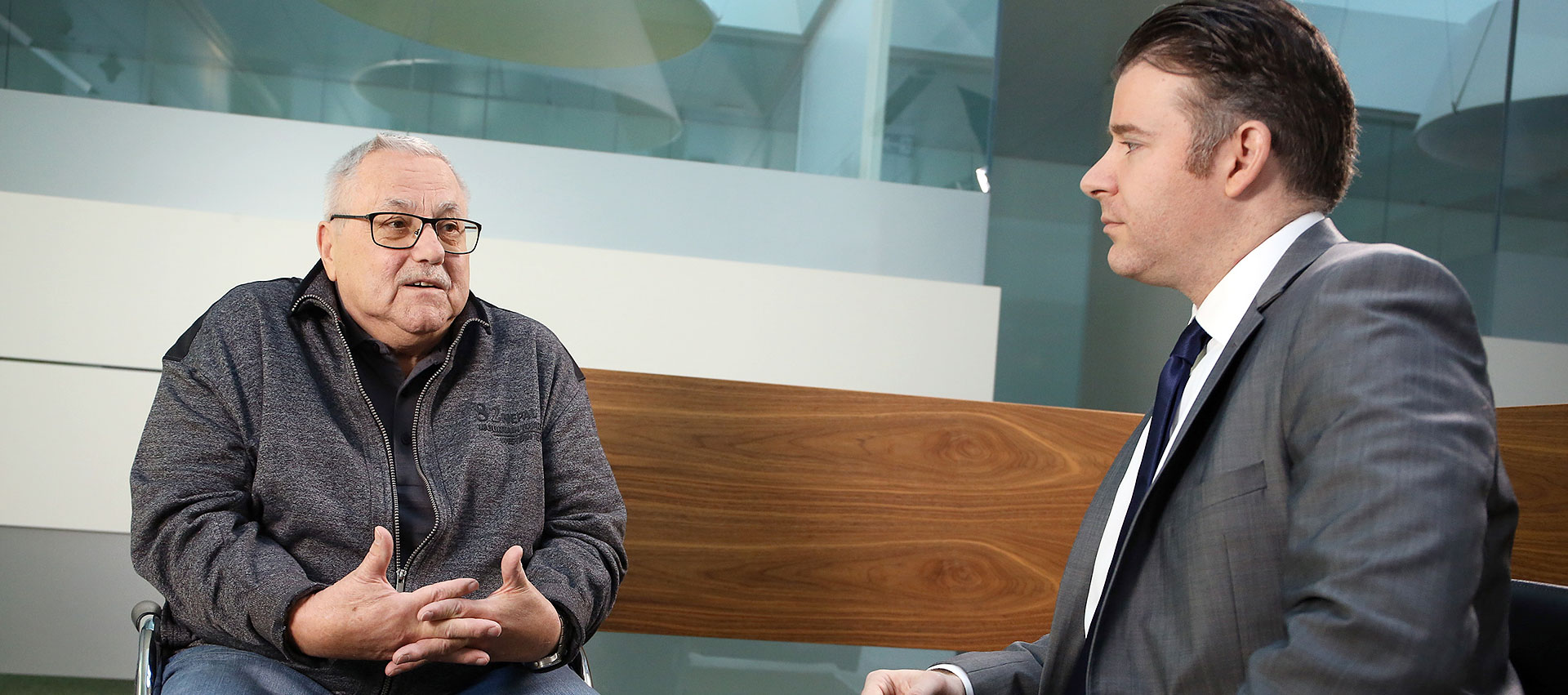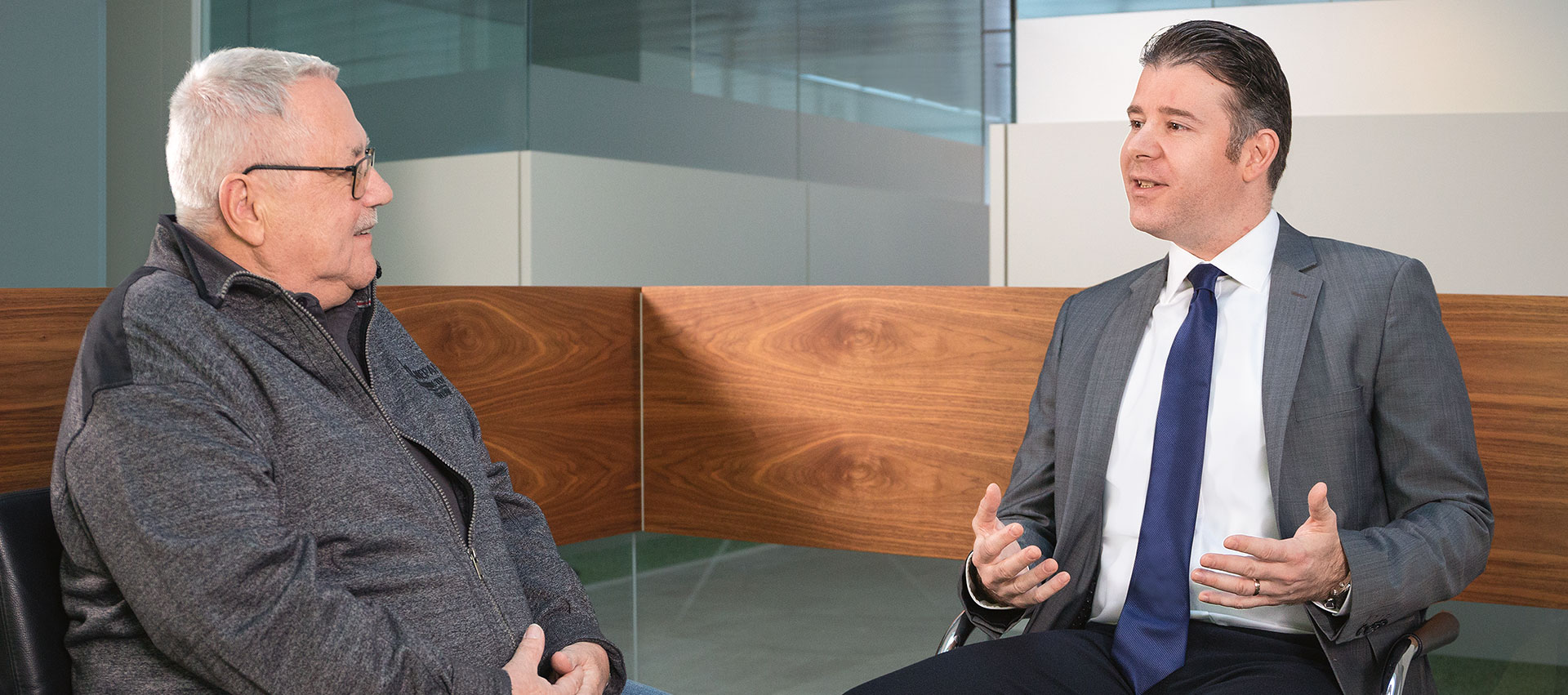
Horst Böhler is a partner at böhler+sohn GmbH in Feldkirch. After finishing his studies and obtaining his master craftsman’s diploma, he joined his father’s company in 1965. In 2010 he passed the operational reins to his two sons, but remained active in the company. He and his friend Dr Manfred Fiel hatched the idea of establishing the “Ifakara” project at Dr Fiel’s 60th birthday. When Dr Fiel died, Horst Böhler continued their social project.
Thomas Mähr is a member of the Board of Management of LLB Fund Services AG and has been heading the Fund Risk Management & Reporting department since the end of 2014. He has been working in various positions in the securities and funds business in Liechtenstein since 2000. His passion is travelling and getting to know different cultures. During a trip around the world he stopped over in Cambodia to work for a non-government organisation helping children from poor families.
Horst, what do you give people in Tanzania as a gift to become independent?
HB: Since 2010 we have been teaching women at the Macipi Agricultural School in Ifakara how to lay sewage pipes or to build a reed bed water treatment plant. We are currently training 726 women, who will disseminate their knowledge throughout Tanzania. We want to help people in Africa to better conduct their lives.
TM: I had the same kind of ideas in my head when I used my “hands and feet” to teach English to children in a town close to Phnom Penh. The history of Cambodia and the Khmer Rouge, a lost generation – simply incomprehensible.
My gut feeling told me: I want to do something.
Those who can speak English can find a job in the tourism industry, for example – a pillar of economic growth in Cambodia.
HB: And when you see that you can really achieve something, like we’ve been doing in Tanzania the past seven years, then you’re somehow proud and also happy. The best is that we could even convince the government, which has since renovated the school building.
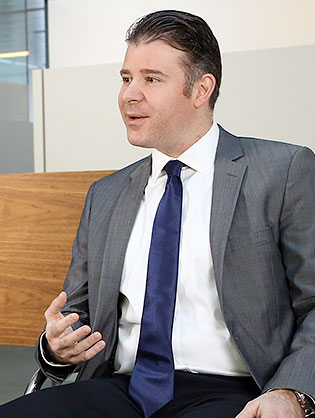
Different worlds.
Doing something good for yourself and for others.
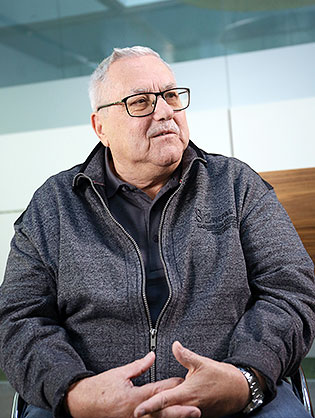
TM: It’s really true: helping others makes us happy, and connects us to other people. What you get in return can’t be measured in monetary terms. The feeling of wanting to help is dormant within us. Often without our awareness.
HB: But then you open your eyes when you start a project. In Africa, watches run on a different time from Europe. Our first act was to create order. It doesn’t help much to try and explain something. So we collected the plastic bottles that were lying around everywhere. Quite pointedly.
The only way is to show by example how something works.
Experience has shown, however, you have no chance on your own. As in the business world, you need partners.
TM: It seems to me that networking, exchanging ideas, learning from the experiences of others is just as important when it comes to social engagement as it is in the business world.
HB: We don’t have to reinvent the wheel the whole time.
Examples to sweep us along.
